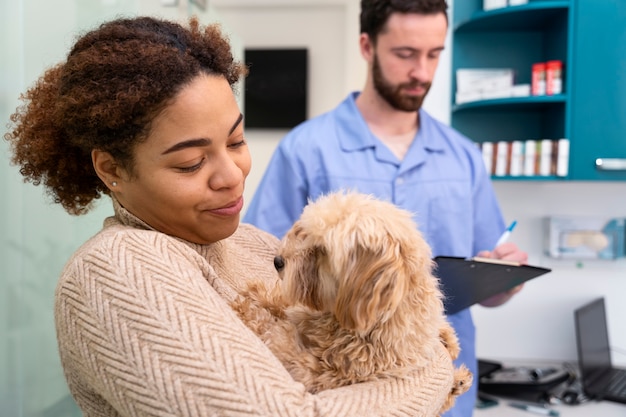What to Do If Your Pet Has Bleeding Gums | PetVet Animal Hospital


Seeing blood in your pet’s mouth can be unsettling. While minor bleeding may not always signal an emergency, it should never be ignored. Whether it’s a sudden trickle of blood or a more persistent issue, bleeding gums in dogs and cats often indicate a deeper underlying problem that requires attention. At PetVet Animal Hospital, we believe in educating pet parents so they can respond quickly and confidently when their pet’s health is at risk.
One of the most common causes of bleeding gums in pets is dental disease. Just like in humans, plaque and tartar can build up on your pet’s teeth over time, leading to gingivitis and periodontal disease. In the early stages, your pet’s gums may appear red and swollen, and bleeding might occur when they chew on toys or eat kibble. If left untreated, this can progress to infections that damage the teeth, jawbone, and even affect vital organs like the heart and kidneys.
Another cause of oral bleeding can be trauma. Pets are curious creatures, and sometimes they chew on objects that are too hard or sharp, such as bones, sticks, or household items. This can cause cuts or lacerations in the mouth or around the gums, leading to visible bleeding. In these cases, you might notice your pet favoring one side of their mouth, pawing at their face, or refusing to eat due to pain.
Bleeding can also result from foreign objects stuck between the teeth or lodged in the gums. If your pet recently played with something that could splinter or break, like a stick or rawhide, inspect their mouth carefully. However, attempting to remove something deeply embedded can make matters worse. It's always safest to let a veterinary professional handle it.
In some cases, bleeding gums can be a symptom of a systemic issue. Conditions like autoimmune diseases, clotting disorders, or certain types of cancer may first present with oral bleeding. If the bleeding seems spontaneous, excessive, or is accompanied by other symptoms such as lethargy, loss of appetite, or swelling, immediate veterinary attention is necessary.
If you notice bleeding from your pet’s gums, gently check the area if your pet allows it. Look for visible wounds, broken teeth, or swelling. Do not use hydrogen peroxide or human medications in your pet’s mouth, as these can be toxic. Instead, try to keep your pet calm and avoid offering hard food or toys that could worsen the bleeding. If the bleeding is mild and stops quickly, it’s still important to schedule a dental exam. Persistent or heavy bleeding should be treated as urgent.
The best way to prevent oral bleeding is through regular dental care. This includes professional cleanings, routine exams, and at-home care such as brushing your pet’s teeth with veterinarian-approved toothpaste. Early detection and treatment of dental disease can make a significant difference in your pet’s comfort and quality of life.
At PetVet Animal Hospital, we are committed to helping pet parents understand the importance of oral health. If your dog or cat is showing signs of bleeding from the mouth, don’t wait to see if it improves on its own. Our team is here to diagnose the cause and provide gentle, effective care to get your pet feeling better.
If your pet is experiencing bleeding gums or other signs of oral discomfort, contact PetVet Animal Hospital today to schedule an exam. Your pet’s health starts with a healthy mouth. Visit us at 14065 Mundy Dr, Fishers, IN 46038 or call (317) 792-8919 for compassionate, expert care.



















